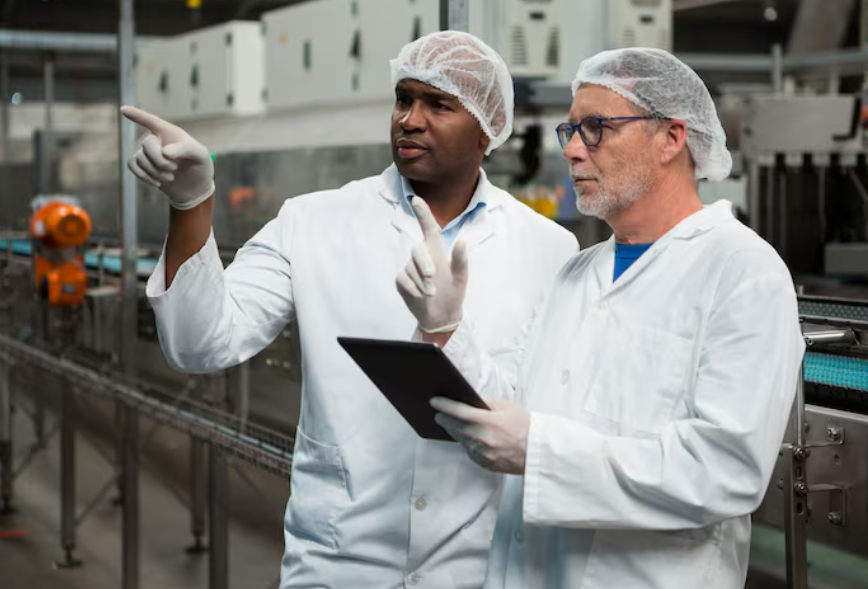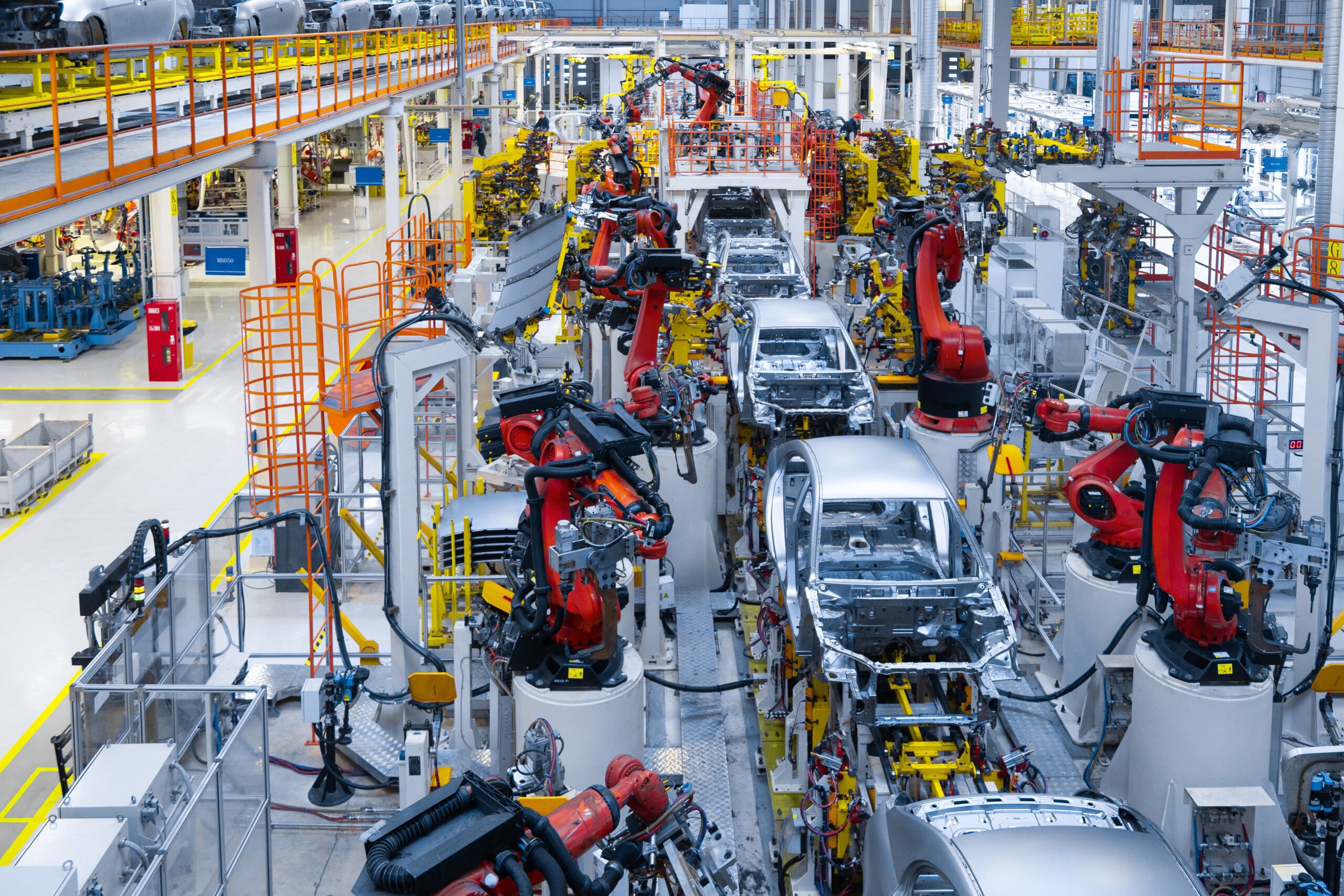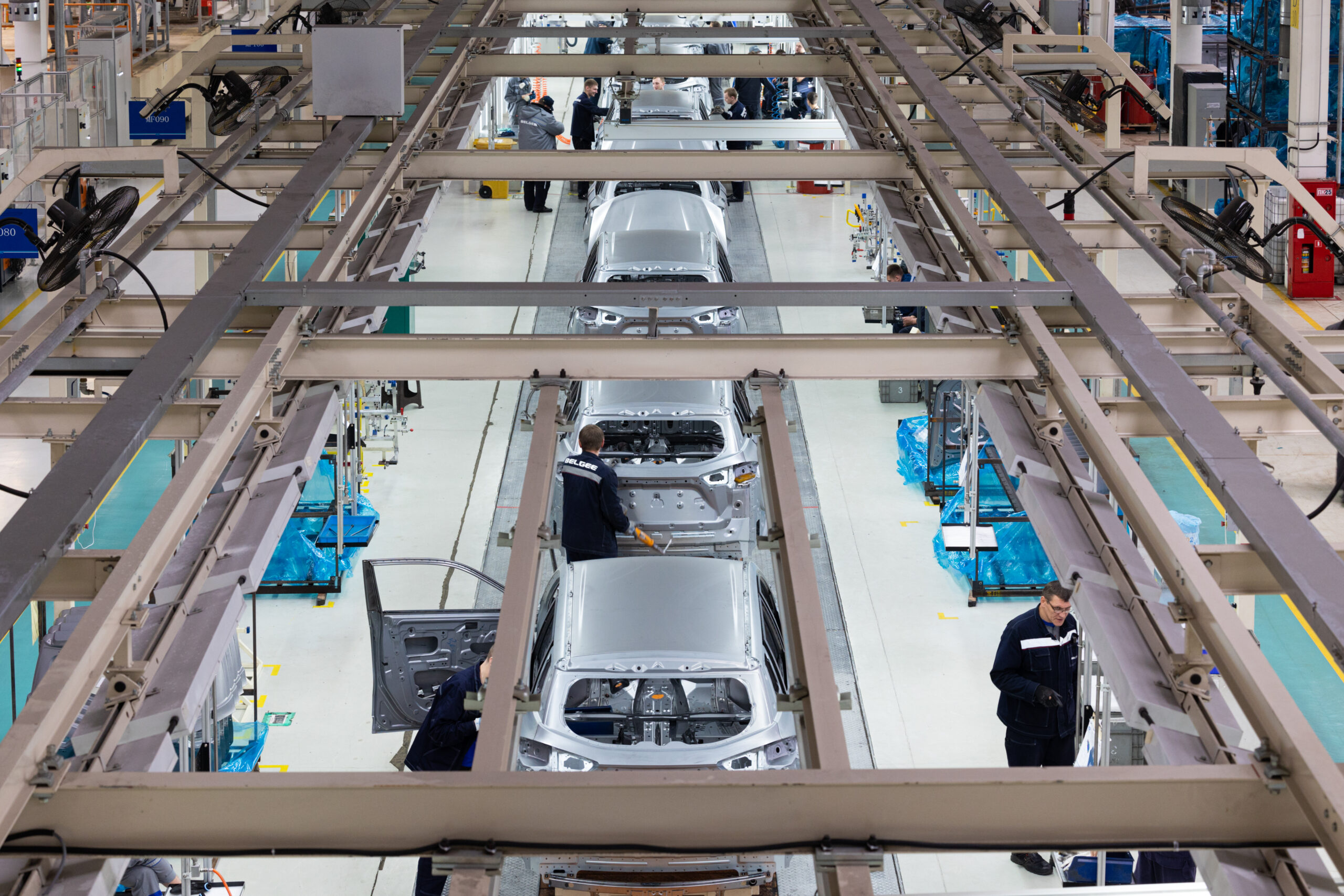How SaaS Solutions Are Transforming Chemical Safety and Waste Management The chemical industry plays a critical role in modern life, driving innovation …

Navigating Food Safety Compliance: What F&B Managers Need to Know Now
Why Food Safety Compliance Is More Critical Than Ever
In the food and beverage (F&B) industry, safety and compliance are not just legal requirements—they are the foundation of consumer trust and brand reputation. From sourcing raw materials to packaging and distribution, every step in the value chain carries potential risks. With regulators tightening oversight and consumers demanding greater transparency, food safety compliance has moved from a back-office obligation to a strategic business priority.
F&B managers are now expected to navigate complex regulations while also aligning operations with sustainability and ESG commitments. This balancing act requires more than routine inspections—it demands a proactive, data-driven approach that ensures safety, efficiency, and accountability across all sites.
The Hidden Risks of Reactive Compliance
Many businesses still approach food safety reactively—responding only when issues arise. While this might seem cost-effective in the short term, it often leads to far greater financial and reputational damage. A single foodborne illness outbreak or product recall can halt production, trigger regulatory penalties, and erode years of consumer trust.
Some of the most damaging risks of reactive compliance include:
- Product recalls, which can cost millions and damage brand reputation overnight
- Regulatory fines, arising from failed inspections or incomplete records
- Operational disruptions, as contaminated batches force shutdowns across multiple sites
- Erosion of consumer trust, which is far harder to rebuild than to maintain
For managers, the lesson is clear: waiting until problems arise is no longer an option.
The Regulatory Landscape: Complex and Evolving
Food safety regulations are becoming increasingly stringent. In the U.S., the FDA’s Food Safety Modernization Act (FSMA) emphasizes prevention rather than response. In Europe, HACCP principles remain central, with additional reporting and traceability requirements under EU regulations. Globally, ISO 22000 is gaining ground as a standard for food safety management systems.
Beyond these, ESG-linked disclosure frameworks now require companies to report on food safety risks, supply chain practices, and environmental impacts. For F&B managers, this means compliance is not only about avoiding fines—it’s also about meeting investor expectations and sustaining market access.
Beyond Compliance: Turning Food Safety into an Advantage
When done right, food safety compliance becomes more than a legal obligation—it evolves into a competitive differentiator. Companies that adopt proactive measures not only reduce risks but also improve efficiency, sustainability, and customer loyalty. For example:
- Digitized traceability systems allow managers to quickly identify and isolate contamination sources, minimizing waste and downtime.
- Supplier training and audits ensure consistency across the value chain, reducing variability in safety practices.
- Data-driven monitoring improves decision-making, enabling companies to forecast risks and adjust processes before problems occur.
In a marketplace where consumers value transparency and sustainability, robust food safety practices strengthen brand equity.
The Role of Suppliers in Food Safety Success
No food safety program is complete without supplier alignment. Ingredients often travel through complex global supply chains, and any gap in supplier compliance introduces risks to the entire operation. Training and auditing suppliers is essential to ensure that safety standards, documentation, and sustainability practices are consistently met.
Well-trained suppliers help companies achieve:
- Reliable ingredient quality across batches and sites
- More accurate records for compliance and ESG reporting
- Reduced risk of contamination or mislabeling
- Stronger collaboration and trust throughout the supply chain
How POSITIIVPLUS Supports Food Safety Compliance
POSITIIVPLUS helps F&B managers move beyond reactive approaches by embedding safety, compliance, and sustainability into everyday operations.
- The Data Manager centralizes records from inspections, audits, and supplier data, providing a single source of truth for compliance.
- The Carbon Analyzer links food safety operations with sustainability metrics, quantifying emissions and waste reductions.
- The Report Builder generates audit-ready documentation for regulators, investors, and ESG disclosures, reducing administrative burden.
- The Training Center empowers employees and suppliers with best practices in food safety, compliance procedures, and sustainable handling.
With these tools, compliance becomes more than a safeguard—it transforms into a driver of trust, efficiency, and long-term competitiveness.
The ROI of Proactive Compliance
Investing in proactive food safety systems delivers measurable returns. Companies consistently report fewer recalls, reduced waste, and improved operational efficiency. Insurance premiums often fall as risk exposure decreases, while access to sustainable financing improves due to stronger ESG performance. Most importantly, proactive compliance protects consumer trust—the most valuable asset in the food and beverage industry.
Building a Culture of Food Safety
Technology and processes are critical, but people remain at the heart of food safety. To achieve lasting results, companies must build a culture where compliance is viewed not as a burden but as a shared responsibility. Regular training, clear accountability metrics, and recognition of best practices help embed this culture across all teams and suppliers.
Over time, this shift turns compliance from a reactive requirement into an integral part of operational excellence and sustainability success.
Conclusion
Food safety compliance is no longer just about passing inspections—it is about protecting consumers, safeguarding reputations, and meeting rising ESG expectations. Reactive approaches expose companies to unacceptable risks, while proactive strategies transform compliance into a source of resilience and trust.
With solutions like POSITIIVPLUS, F&B managers can align people, processes, and suppliers to ensure that food safety becomes a core pillar of business success. In an era of heightened regulatory scrutiny and consumer awareness, navigating compliance effectively is not optional—it is the foundation of a future-ready food and beverage business.
Emerging Trends in Chemical Regulatory Reporting for 2025 and Beyond. The chemical industry is entering a transformative phase where regulatory reporting is …
The Role of ESG in Building a Sustainable Chemical Supply Chain The chemical industry is at the heart of global progress, powering …
Global Chemical Safety Compliance Challenges Faced by Manufacturers The chemical industry is one of the world’s most dynamic and impactful sectors, fueling …
Workforce Training for the Future of Mobility The automotive sector is in the midst of a speeding change with the advent of …
EV Manufacturing and Carbon Reduction Roadmaps The transition to electric vehicles (EVs) is revolutionizing the automotive sector. As EVs hold the promise …
IATF 16949 Compliance Made Simple in Automotive Manufacturing Obtaining compliance with IATF 16949, the worldwide quality management standard for the automotive market, …
Reducing Automotive Recalls with Data Manager Automotive recalls are expensive, harmful to brand image, and disruptive to production timelines. No matter the …







